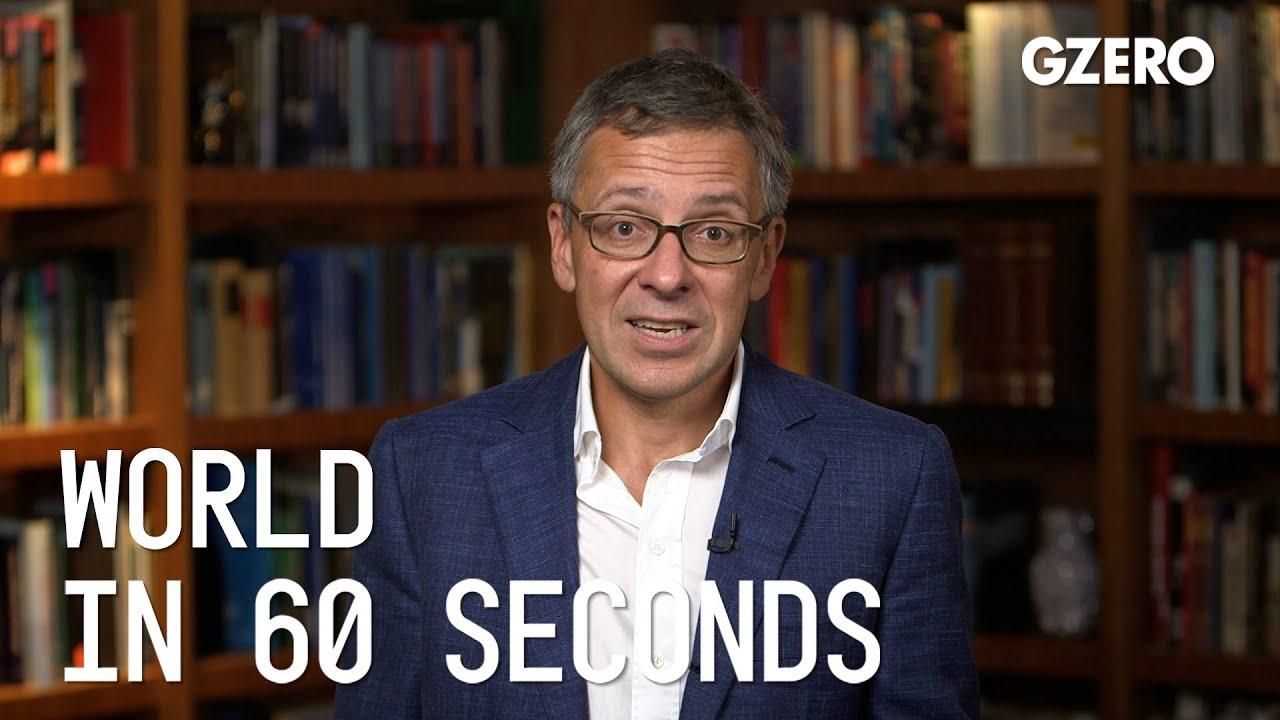Ian Bremmer shares his insights on global politics this week on World In :60.
As high-level week at UNGA gets underway, that's United Nations General Assembly, what is top of mind for visiting world leaders?
I don't know. How about war on the ground in Europe? How about massive inflation happening in food prices and energy prices around the world? How about how the Europeans get through a very cold winter and what happens as a consequence of that when they don't have enough energy, and prices are like two, three, four, five times what they were last year? How about climate change ongoing and still becoming a bigger and bigger problem every year? Lots to talk about at UNGA, depends on who you talk to though. Depends on who you talk to.
Is Putin looking to end the war in Ukraine as President Erdogan of Turkey suggests.
It's interesting. I was with the president of Kazakhstan yesterday, President Tokayev, and he also suggested that in his meeting with Putin, the fact that Putin said that he was interested in talking to Zelensky and opening negotiations without preconditions, which he certainly wasn't saying before, struck him as significant. Look, who knows at the end of the day if Putin would be willing to start talks. But what is very clear is that Putin's willingness to accept an outcome of the war is nowhere close to what would be remotely acceptable to Zelensky and the Ukrainian people. Putin is not going willing to give up the territory that they have captured since February 24th. And the Ukrainians believe that by fighting, they can potentially take it back. So I don't think we are anywhere close to an end to the fighting in Ukraine, over Ukraine, and more broadly between Russia and NATO.
President Biden says "the pandemic is over". Is it?
Well, I mean, it feels over in the United States, though a lot of people are still dying of COVID. But of course, a lot of people die of a lot of things in the United States. I will say that in China, the pandemic is most definitively not over and that's because most of the Chinese had never gotten COVID. A disturbing number of elderly Chinese still haven't gotten vaccines. The vaccines they have aren't very effective and as a consequence, that's one of the biggest things that's driving all these lockdowns, rolling lockdowns, driving significant problems on the ground. I'm not going to China. You're not going to China. Why not? Because there's still a pandemic. Clearly, Biden didn't care about that when he was asked the question, but that wasn't what he was talking about. He was talking about the US. He looked around, think it was an auto show or something, and said nobody's wearing mask. Pandemic must be over. Hey, that means the pandemic has been over in Florida for like two years. Awesome. I don't know. We'll see what you say about that. Talk to you soon.
More For You
In this Quick Take, Ian Bremmer addresses the killing of Alex Pretti at a protest in Minneapolis, calling it “a tipping point” in America’s increasingly volatile politics.
Most Popular
Who decides the boundaries for artificial intelligence, and how do governments ensure public trust? Speaking at the 2026 World Economic Forum in Davos, Arancha González Laya, Dean of the Paris School of International Affairs and former Foreign Minister of Spain, emphasized the importance of clear regulations to maintain trust in technology.
Will AI change the balance of power in the world? At the 2026 World Economic Forum in Davos, Ian Bremmer addresses how artificial intelligence could redefine global politics, human behavior, and societal stability.
Ian Bremmer sits down with Finland’s President Alexander Stubb and the IMF’s Kristalina Georgieva on the sidelines of the World Economic Forum to discuss President Trump’s Greenland threats, the state of the global economy, and the future of the transatlantic relationship.
